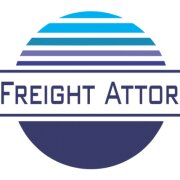Best Agriculture Lawyers in Port Harcourt
Share your needs with us, get contacted by law firms.
Free. Takes 2 min.
List of the best lawyers in Port Harcourt, Nigeria
About Agriculture Law in Port Harcourt, Nigeria:
Port Harcourt, Nigeria, is known for its rich agricultural resources and is a hub for various agricultural activities. Agriculture plays a vital role in the economy of Port Harcourt, contributing to both food security and employment opportunities. However, like any industry, agriculture is subject to laws and regulations that govern its operations and ensure fair practices.
Why You May Need a Lawyer:
There are several situations where seeking legal advice from a lawyer is essential in the field of agriculture. Some common scenarios where you may require legal help include:
1. Land Acquisition and Ownership: When buying or leasing agricultural land, a lawyer can help ensure that the transaction is legally binding and protect your interests.
2. Contractual Agreements: Whether dealing with suppliers, buyers, or service providers, having a lawyer review and draft contracts can help safeguard your rights and prevent future disputes.
3. Regulatory Compliance: Understanding and complying with the various agricultural laws and regulations can be complex. A lawyer can guide you through the legal requirements, permits, and licenses necessary for operating within the sector.
4. Dispute Resolution: In the event of a disagreement or conflict, a lawyer can represent your interests and help resolve disputes through negotiation, mediation, or litigation.
5. Intellectual Property Protection: If you have developed a new agricultural technology or innovation, a lawyer can assist in protecting your intellectual property through patents, trademarks, or copyrights.
Local Laws Overview:
The following key aspects of local laws are particularly relevant to agriculture in Port Harcourt, Nigeria:
1. Land Use Laws: Port Harcourt has specific regulations regarding land use for agricultural purposes, zoning laws, and restrictions on certain activities to protect the environment.
2. Agricultural Inputs: The importation, registration, and use of agricultural inputs such as seeds, fertilizers, and pesticides are regulated to ensure their safety and efficacy.
3. Agricultural Practices: Local laws govern acceptable agricultural practices, including crop rotation, irrigation systems, waste management, and animal welfare, to promote sustainable and ethical farming.
4. Food Safety and Quality Standards: Regulations ensure that food produced and sold in Port Harcourt meets the necessary safety and quality standards to protect consumers.
Frequently Asked Questions:
Q1: Can I start an agricultural business in Port Harcourt without legal assistance?
A1: While it is possible to start an agricultural business without legal assistance, consulting with a lawyer can help you navigate legal requirements, contracts, and potential risks associated with the industry.
Q2: How can I protect my agricultural land from encroachment?
A2: Hiring a lawyer to assist in acquiring and registering your agricultural land can help protect it from encroachment. They can also guide you on how to handle boundary disputes, trespassing, and land tenure issues.
Q3: What permits or licenses do I need to operate an agro-processing facility?
A3: Operating an agro-processing facility requires obtaining the necessary permits and licenses from relevant government agencies. A lawyer can help you identify the specific requirements and guide you through the application process.
Q4: Is it essential to have written contracts with suppliers and buyers?
A4: While verbal contracts can be enforceable, having written contracts with suppliers and buyers provides clarity, protects your interests, and reduces the chances of disputes. A lawyer can help draft or review contracts to ensure they meet legal requirements.
Q5: What legal remedies are available if someone infringes on my agricultural innovation?
A5: If someone infringes on your agricultural innovation, you may seek legal remedies such as filing a lawsuit to enforce your intellectual property rights. Consulting with a lawyer experienced in intellectual property law is crucial for navigating such matters.
Additional Resources:
For further information and assistance, you may find the following resources helpful:
- Port Harcourt Ministry of Agriculture and Natural Resources: This governmental body provides information on agricultural policies, programs, and legal requirements.
- Agricultural Development Programs: Various organizations and NGOs offer support, training, and legal guidance to farmers and agribusiness entrepreneurs in Port Harcourt. Examples include the Rivers State Agricultural Development Program (RSADP) and Rivers State Agricultural Cooperative Federation (RIVCOF).
Next Steps:
If you require legal assistance in agriculture, consider taking the following steps:
1. Determine your specific legal needs, whether it's related to land acquisition, contracts, compliance, disputes, or intellectual property.
2. Seek referrals or conduct research to find experienced agricultural lawyers in Port Harcourt, Nigeria.
3. Schedule a consultation with a lawyer to discuss your situation and understand their expertise in agricultural law.
4. Prepare any relevant documents or information to share with the lawyer during the consultation.
5. Based on the consultation, evaluate whether you feel comfortable working with the lawyer and discuss their fees and engagement terms.
6. If you decide to proceed, engage the lawyer to represent you in your agricultural legal matters.
Remember, consulting with a lawyer can provide valuable guidance and ensure your agricultural activities in Port Harcourt are compliant with legal requirements, protecting your interests and investments.
Lawzana helps you find the best lawyers and law firms in Port Harcourt through a curated and pre-screened list of qualified legal professionals. Our platform offers rankings and detailed profiles of attorneys and law firms, allowing you to compare based on practice areas, including Agriculture, experience, and client feedback.
Each profile includes a description of the firm's areas of practice, client reviews, team members and partners, year of establishment, spoken languages, office locations, contact information, social media presence, and any published articles or resources. Most firms on our platform speak English and are experienced in both local and international legal matters.
Get a quote from top-rated law firms in Port Harcourt, Nigeria — quickly, securely, and without unnecessary hassle.
Disclaimer:
The information provided on this page is for general informational purposes only and does not constitute legal advice. While we strive to ensure the accuracy and relevance of the content, legal information may change over time, and interpretations of the law can vary. You should always consult with a qualified legal professional for advice specific to your situation.
We disclaim all liability for actions taken or not taken based on the content of this page. If you believe any information is incorrect or outdated, please contact us, and we will review and update it where appropriate.
















